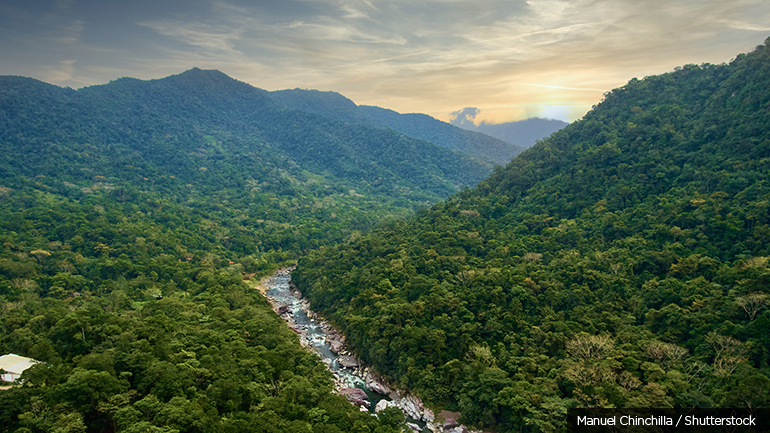
Honduras’ rich biodiversity is under threat from deforestation, driven by agricultural expansion, illegal logging, and infrastructure development. Soil erosion, particularly in the mountainous areas, further compounds these issues, leading to the degradation of fertile land and reduced agricultural productivity. Honduras is highly vulnerable to the impacts of climate change, which exacerbate the frequency and severity of natural disasters such as hurricanes, floods, and droughts. These environmental challenges not only threaten the country's ecosystems but also the livelihoods of its rural populations, many of whom depend on the land and natural resources for their survival.
In response to these challenges, PROGREEN is supporting a country knowledge program in Honduras' Moskitia region, one of the most remote and ecologically significant areas of the country. The program aims to deepen the understanding of environmental dynamics in the region by analyzing the drivers of deforestation, documenting cultural land use practices, and assessing land tenure security. The insights gained from these efforts are intended to inform the development of sustainable land management and policies that are tailored to the unique needs of the Moskitia region.
The program adopts a participatory approach, which is crucial for ensuring that the voices and knowledge of Indigenous and Afro-descendant communities are central to the decision-making process. Through a series of workshops, consultations, and mapping exercises, these communities are actively engaged in the research process, contributing their traditional knowledge and cultural practices to the project’s findings. This approach not only enriches the quality of the data collected but also fosters a sense of ownership among the local populations, increasing the likelihood of successful and sustained implementation of the recommended policies.
Significant progress has been made in the project, with Ayuda en Acción (AeA) delivering key reports on deforestation drivers, cultural land use practices, and land tenure security in the Honduran Moskitia region. These reports are under review, with further community consultations scheduled to refine the findings.